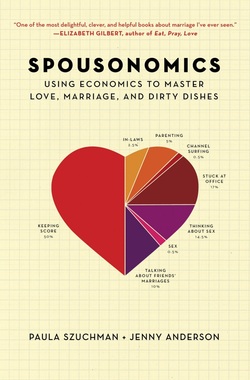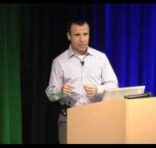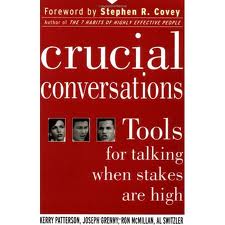 At Brad Feld's recommendation, I checked out Spousonomics: Using Economics to Master Love, Marriage, and Dirty Dishes by Paula Szuchman and Jenny Anderson. As someone who's taken econ classes in high school and college, I was skeptical about the book and thought its applications would be pretty cheesy. It's true that some of the applications (like around game theory) were a bit contrived, I found that most everything else was sensible and actually useful to real life and real relationships. The book was overall really well written with a witty voice and lots of little jokes spread throughout that made me happy as a reader. I enjoyed reading stories about the relationships of professional couples (and people married to economists!), and I enjoyed reading that many of the issues I've been facing are not uncommon. I got some practical advice on small, incremental hacks and fixes (at the margin!), which I enjoyed, and I liked seeing that many of it goes counter to "traditional" advice. It was also fun to get a light-hearted refresher of all the basic econ topics and hear about how Nobel prize-winning economists deal with issues in their own marriages. Below are my notes on the book.
0 Comments
 Guy Winch gave an awesome talk today at Google New York about his book Emotional First Aid: Practical Strategies for Treating Failure, Rejection, Guilt, and Other Everyday Psychological Injuries. It was a really practical, down to earth, evidence-based talk about how we routinely ignore taking care of our emotional side with the same seriousness that we do our physical side. In a nutshell, his point was that we are beset daily with frequent emotional injuries that we do not have good "remedies" or treatments for in the same way that we have band aids and medicine for physical ones, but these emotional injuries (like failure, guilt, and rejection) cause immense damage to our abilities and our physical health as well. Below are a few of my notes and takeaways. I look forward to reading his book soon.  I just finished reading Crucial Conversations: Tools for Talking When Stakes Are High by Kerry Patterson, Joseph Grenny, Ron McMillan, and Al Switzler. The book echoed a lot of good lessons from prior books on conversations I've read, but it did so in a very practical and structured manner with lots of examples, which I really liked. It made me realize how many of our interactions on a regular basis have a "crucial" element and how often we go into silence or violence when we get emotional and try to persuade people. The book is very helpful in giving concrete signals to look for in yourself and other people to check whether you're really in dialogue and safe or whether the situation is getting too dangerous (and how to restore that). Of course, these skills are much easier to read and understand than to execute, but I found the book to be really helpful, and I hope to use it in the future to improve my own skills in this area. |
Archives
June 2024
Categories
All
Subscribe |
 RSS Feed
RSS Feed
